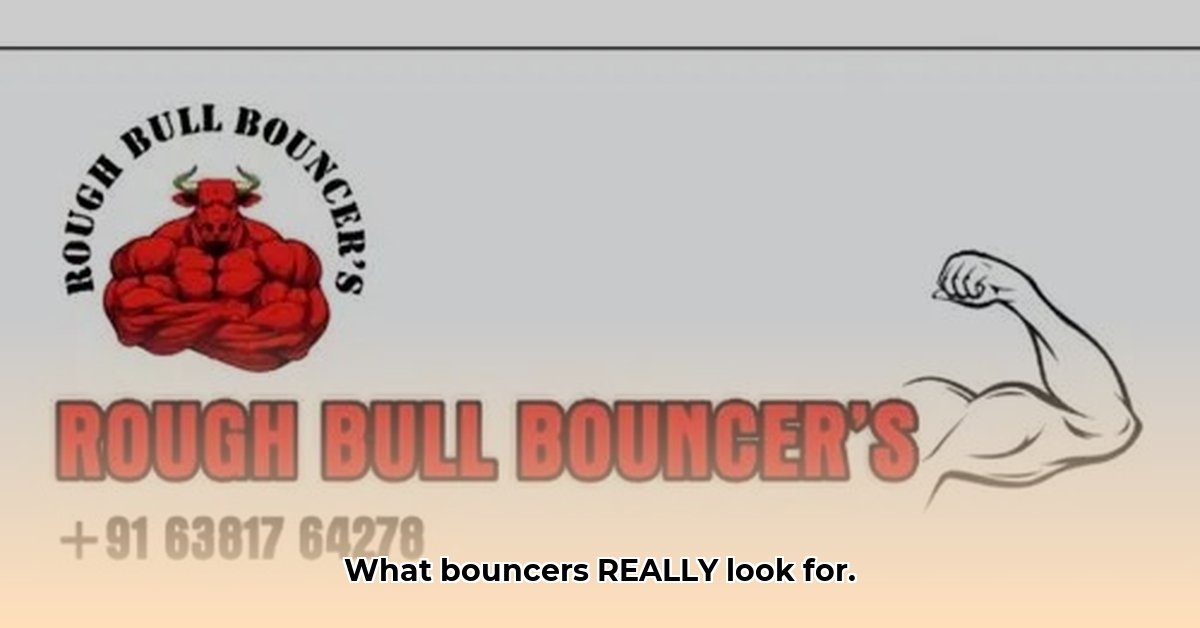Quick Summary: Stuck on the NYT Mini Crossword clue about what bouncers check? The answer is IDS. While they might also glance at bags and coats for security reasons, bouncers primarily check IDs to verify age and ensure everyone inside is of legal drinking age.
Why Bouncers Card You
The main reason bouncers check IDs is age verification. They’re responsible for upholding the law and ensuring no underage individuals are allowed in. This protects both the patrons and the establishment. It also helps the venue avoid penalties and maintain its license.
Beyond age, IDs can also help identify individuals who might have caused problems in the past or are on a “do not admit” list, adding another layer of security.
Beyond IDs: The Bag and Coat Check
While your ID is the key, bouncers might also give your bag or coat a quick once-over. This is primarily a safety precaution. They’re looking for prohibited items that could pose a risk, such as weapons, illegal substances, or outside food and beverages (which can impact the venue’s profits). Oversized bags are often also restricted due to fire hazards and potential obstruction of exits in crowded venues.
Knowing Your Rights at the Door
Bouncers maintain order and safety, but they must also respect your rights. Searches should be reasonable and lawful. While specific regulations vary by location, it’s helpful to be aware of your rights as a patron. Cooperation with security usually leads to a smoother experience. If you believe your rights have been violated, document the incident and contact the venue’s management or the appropriate authorities.
Here’s a quick guide to bouncer interactions and your rights:
| Scenario | Bouncer’s Right? | Your Right? |
|---|---|---|
| Valid ID presented | Yes, to grant entry. | Yes, to enter the venue. |
| Refuse to present valid ID | Yes, to deny entry. | Yes, to refuse entry (but you won’t get in). |
| Present invalid/expired ID | Yes, to deny entry. | Yes, to refuse entry (but you won’t get in). |
| Suspected fake ID | Yes, to deny entry, confiscate the ID, and contact authorities. | Yes, to refuse entry and seek legal recourse if needed. |
| Valid ID, refusal to check bag | Yes, to deny entry. | Yes, to refuse entry (and the search). |
| Use of force | Yes, reasonable force to maintain order and prevent harm. | No, to be subjected to excessive force. |
Tips for a Smooth Night Out
- Have your ID ready: Avoid fumbling at the door by having your identification easily accessible.
- Dress code check: Research the venue’s dress code policy in advance to avoid any surprises.
- Baggage awareness: Check the venue’s policy on bag sizes and prohibited items before you go. Consider carrying a small bag or clutch to expedite entry.
- Be polite and cooperative: A little respect goes a long way with security personnel.
Staying Safe Inside
Once inside, prioritize your safety:
- Buddy system: Stick with your friends and look out for one another.
- Situational awareness: Be aware of your surroundings and trust your instincts. If something feels off, it probably is.
- See something, say something: Report any suspicious activity or concerns to venue staff or security.
Creating a safe and enjoyable environment is a collective effort. By being prepared, respectful, and aware, you contribute to a positive experience for everyone. Have fun, and stay safe!
Ongoing Discussion: Bouncer Practices and Patron Rights
The topic of bouncer searches and patron rights continues to be an area of discussion and evolving research. Some argue for more stringent regulations on bouncer conduct, while others emphasize the need for better training in conflict resolution and de-escalation techniques. The balance between ensuring safety and respecting individual liberties is complex, and best practices are likely to continue evolving as research progresses. Some experts suggest that implicit bias may play a role in bouncer interactions, though more research is needed in this area.
- Best iPhone Games With No Ads for Uninterrupted Play - February 17, 2026
- Free Games Without Ads Offer Uninterrupted Mobile Fun - February 16, 2026
- Play Android Games Without Ads For Pure Mobile Enjoyment - February 15, 2026










